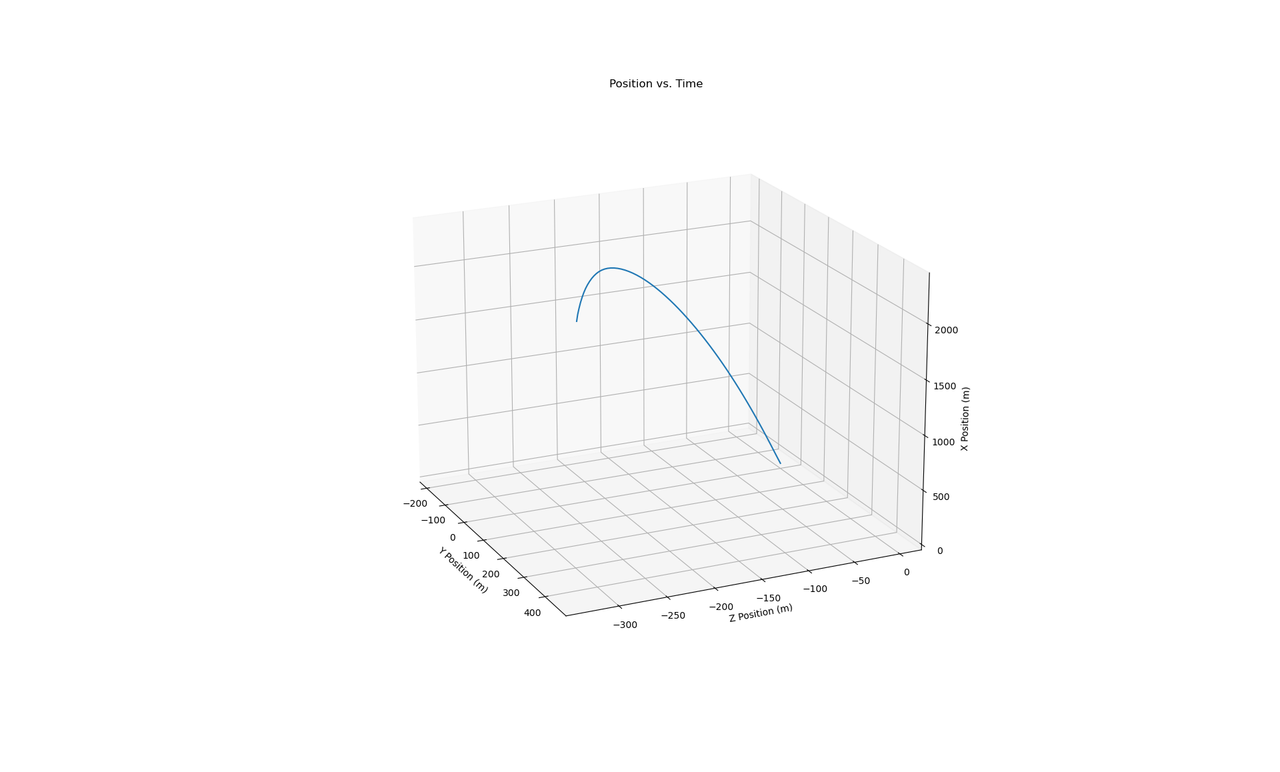A C++ implementation of the G-FOLD algorithm.
G-FOLD is an acronym for Guidance for Fuel-Optimal Large Diverts. It is a guidance algorithm that attempts to find the best trajectory for powered descent, such as for rocket boosters and planetary landers. It uses convex optimization to get as close to the landing target as possible, and then optimizes for fuel usage to select the most optimal trajectory.
This project attempts to implement the G-FOLD algorithm in C++ as a demo that plots the some of the numerical examples in the original paper using matplotlib-cpp.
The algorithm is not fully discretized in this project.
I am also not a rocket scientist. This is a demo - a toy - not a production-ready piece of code. I make no guarantees about the correctness nor the functional completeness of the project. USE AT YOUR OWN RISK!
- CMake
- Eigen
- Catch2
- Python3 Matplotlib
git clone https://github.com/caojohnny/gfold.git
cd gfold
mkdir build && cd build
cmake .. && make
./gfoldThe G-FOLD algorithm is abstracted to the gfold.h and
gfold.cpp files. These files are documented, and as such,
it is worth taking a look at their sources and/or
generating HTML documentation for the G-FOLD classes.
A Doxyfile has been included with this repository, and
the documentation can be generated by executing the
following command in the root directory using Doxygen:
doxygenThe generated documentation can be viewed by opening the
doc/html/index.html file in your preferred web browser.
Built with CLion
Utilizes:
"Lossless Convexification of Non-Convex Control Bound and Pointing Constraints of the Soft Landing Optimal Control Problem." B. Acikmese, J. M. Carson III, and L. Blackmore. IEEE Transactions on Control Systems Technology, Volume 21, Issue 6 (2013). [Online]. Available: http://larsblackmore.com/iee_tcst13.pdf
B. Acikmecse and S. R. Ploen, "Convex programming approach to powered descent guidance for mars landing,"Amer. Inst. Astron. Aeron.J. Guid., Control Dyn., vol. 30, no. 5, pp. 1353–1366, 2007.
